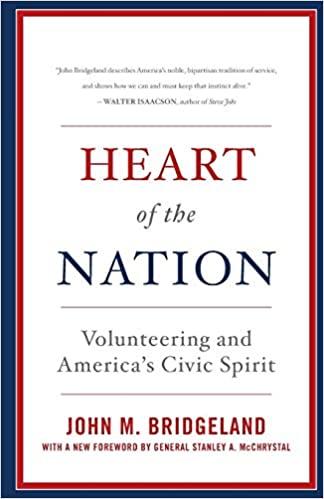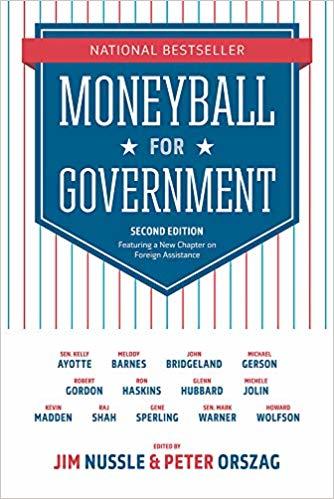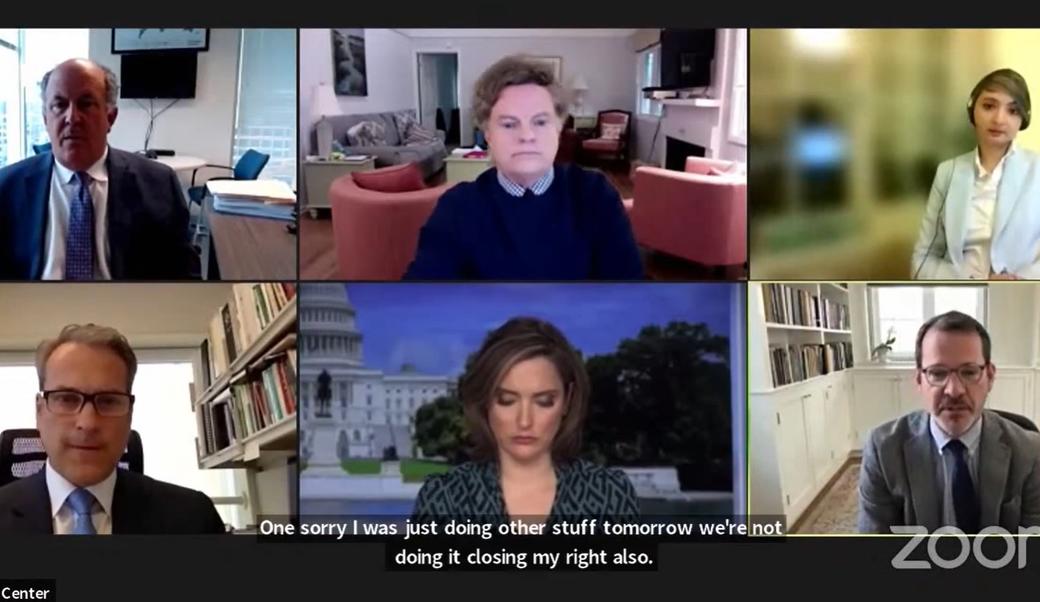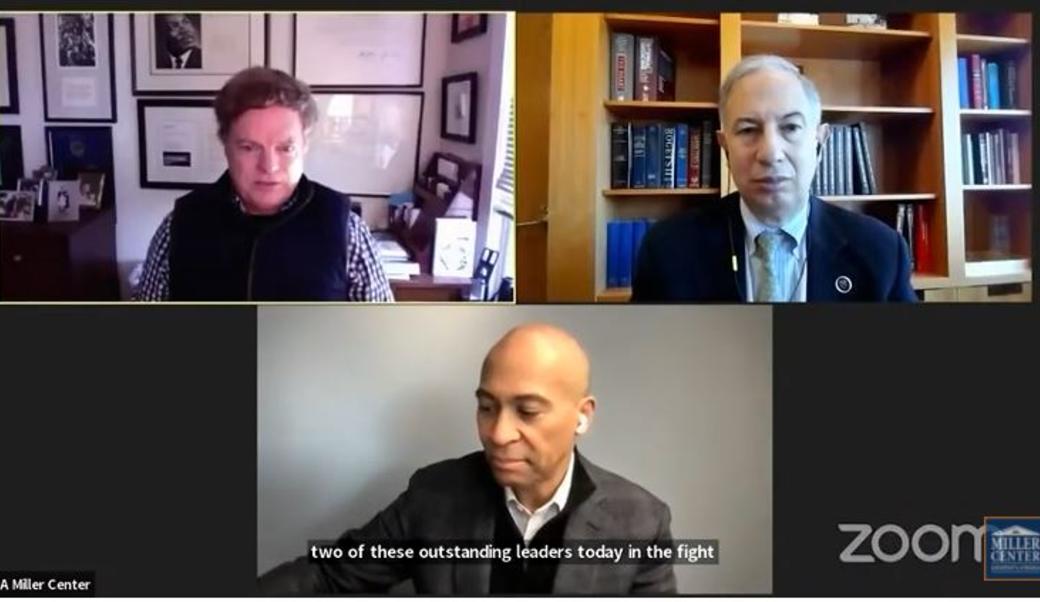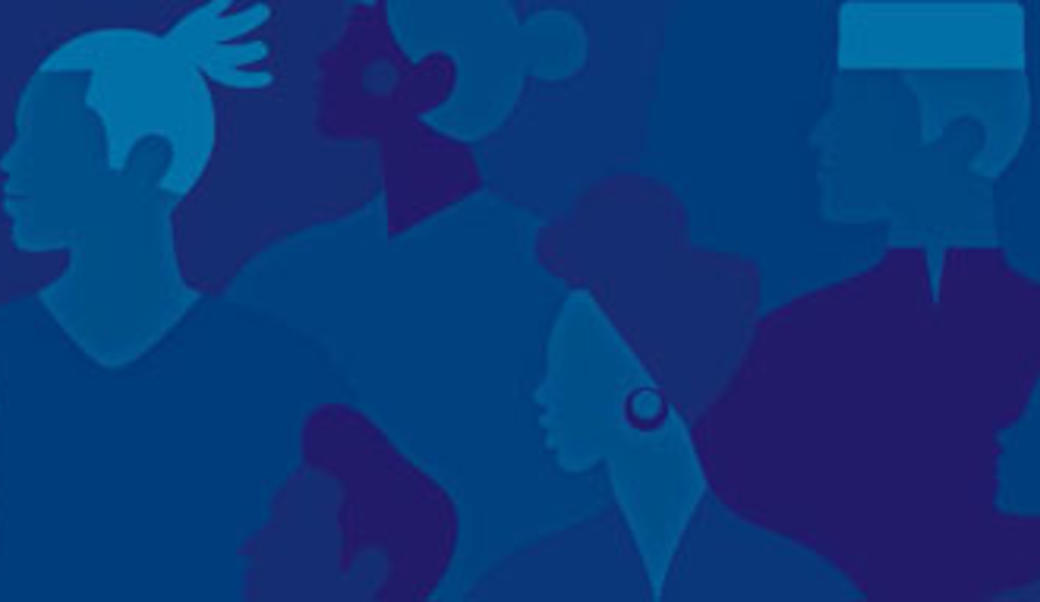Fast Facts
- Executive chairman, Office of American Possibilities
- Cofounder, executive chairman, and CEO, More Perfect
- Former director, White House Domestic Policy Council
- Expertise on domestic policy, volunteerism, education, environment
Areas Of Expertise
- Domestic Affairs
- Education
- Law and Justice
- Social Issues
- Leadership
John Bridgeland is executive chairman of the Office of American Possibilities, a civic moonshot factory that taps the entrepreneurial talent of Americans to solve public challenges together across divides. In that capacity, he is cofounder, executive chairman and CEO of More Perfect, a bipartisan initiative with 34 presidential centers (from Washington’s Mount Vernon through the Obama Foundation), the National Archives Foundation, the American Academy of Arts & Sciences, the Corporation for Public Broadcasting, UVA's Karsh Institute of Democracy, and 100 partners to protect and renew American democracy by advancing five foundational democracy goals.
Bridgeland is also cofounder and CEO of the COVID Collaborative; cofounder and cochairman of Welcome.US, which engages Americans in supporting the resettlement of Afghan, Ukrainian, and other refugees; and founding CEO and vice chairman of Malaria No More, launched at the White House Summit on Malaria he coled. Since 2001, more than 14 million lives have been saved from malaria.
He has been a leader for 20 years on the high school dropout challenge, with his report The Silent Epidemic generating a TIME cover story, two Oprah shows, and other coverage, and he is cofounder of the Grad Nation campaign, which held more than 200 summits across all 50 states. Graduation rates have climbed from 71 percent in 2001 to 86.5 percent in 2020, translating into more than 5 million more students graduating from high school rather than dropping out.
Bridgeland is also cofounder and vice chairman of the Service Year Alliance to expand civilian national service, and he is the founder of Tennis for America with the Intercollegiate Tennis Association, which awarded him its Lifetime Achievement Award presented by Wimbledon Champion Stan Smith. He is also author of the book, Heart of the Nation: Volunteering and America's Civic Spirit, with a foreword by General Stanley McChrystal, and he gave a TED talk, One Nation Indivisible.
In 2010, President Barack Obama appointed Bridgeland to the White House Council for Community Solutions. In 2001, President George W. Bush appointed Bridgeland as director of the White House Domestic Policy Council, assistant to the president, and first director of the Freedom Corps to coordinate policy on international, national, community, and faith-based service in the aftermath of 9/11. He also oversaw the White House Office of Faith-Based and Community Initiatives.
Bridgeland began his professional career by practicing law in the New York and Paris, France offices of Davis Polk & Wardwell. Bridgeland graduated with honors in government from Harvard University, where he wrote his senior honors thesis under James Q. Wilson and played on the Harvard varsity tennis team; studied at the College of Europe and Université Libre de Bruxelles as a Rotary International Fellow; and received his JD from the University of Virginia School of Law. Bridgeland has honorary degrees and has delivered the commencement address at half a dozen colleges, including the College of William and Mary and Johns Hopkins University.
